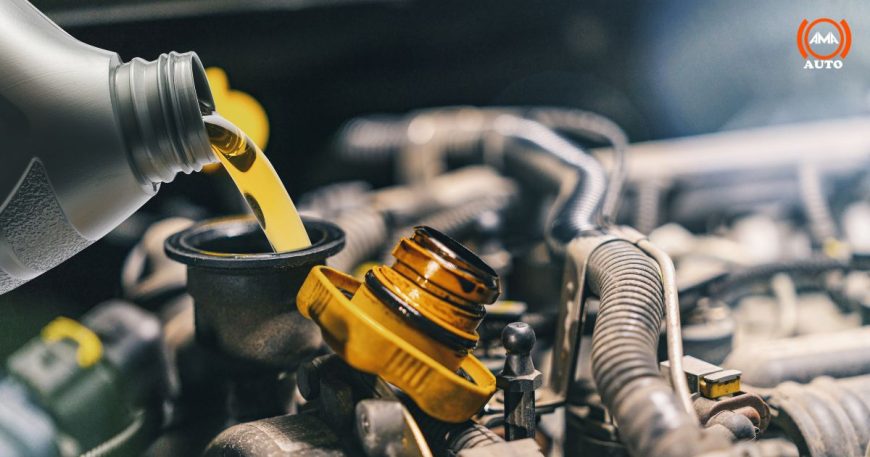Best Engine Oil for Your Car in Summer
Summer brings scorching temperatures that can take a toll on your car’s engine. Choosing the right engine oil is crucial to ensure smooth performance, prevent overheating, and extend your engine’s lifespan. With so many options available, how do you pick the best one?
In this guide, we’ll discuss:
✔ Why engine oil matters in summer
✔ Key factors to consider when choosing summer engine oil
✔ Top recommended engine oils for hot weather
✔ Tips for maintaining your engine in extreme heat
Why Engine Oil Matters More in Summer
Engine oil lubricates moving parts, reduces friction, and helps dissipate heat. In summer, high temperatures can cause oil to thin out, reducing its effectiveness. If the oil becomes too thin, it won’t protect the engine properly, leading to:
– Increased wear and tear
– Overheating and engine knocking
– Reduced fuel efficiency
– Potential engine failure in extreme cases
Using the right viscosity and type of oil ensures optimal performance even in extreme heat.
Key Factors to Consider When Choosing Summer Engine Oil
1. Viscosity Rating (SAE Grade)
Viscosity determines how well oil flows at different temperatures. The **SAE rating** (e.g., 5W-30, 10W-40) indicates oil thickness:
– First number (e.g., 5W, 10W) – Cold weather performance (lower = better flow in cold starts).
– Second number (e.g., 30, 40) – High-temperature performance (higher = thicker oil in heat).
For summer, opt for higher second numbers like 10W-40 or 20W-50** for better heat resistance.
2. Synthetic vs. Conventional Oil
– Conventional Oil – Cheaper but breaks down faster in heat.
– Synthetic Oil – More stable, resists thermal break-down, and lasts longer. Best for high-performance and turbocharged engines.
– Synthetic Blend – A middle-ground option with better heat resistance than conventional oil.
Verdict: Synthetic oil is the best choice for summer due to superior heat resistance.
3. API & ACEA Ratings
Look for oils with:
– API SN/SP (for gasoline engines) or CK-4/FA-4 (for diesel).
– ACEA A3/B4 or C3 (for European cars).
These ratings ensure the oil meets modern engine protection standards.
Top 5 Best Engine Oils for Summer
1. Mobil 1 Extended Performance 10W-30 (Full Synthetic)
✅ Best for: High-performance engines
✅ Pros: Excellent thermal stability, long-lasting, reduces engine wear
✅ Cons: Pricier than conventional oils
2. Castrol GTX Magnatec 10W-40 (Synthetic Blend)
✅ Best for: Older engines & daily drivers
✅ Pros: Clings to engine parts for better startup protection, good heat resistance
✅ Cons: Not as durable as full synthetic
3. Valvoline High Mileage 10W-40 (Synthetic Blend)
✅ Best for: Cars with 75,000+ miles
✅ Pros: Prevents leaks, reduces burn-off, extends engine life
✅ Cons: Slightly thicker, may not suit all engines
4. Shell Rotella T6 15W-40 (Full Synthetic, Diesel & Gasoline)
✅ Best for: Trucks, SUVs, and turbocharged engines
✅ Pros: Extreme heat protection, reduces deposits
✅ Cons: Overkill for small economy cars
5. Pennzoil Platinum 5W-30 (Full Synthetic)
✅ Best for: Fuel efficiency & modern engines
✅ Pros: Cleaner engine, better fuel economy, great heat resistance
✅ Cons: Thinner viscosity may not suit very hot climates
Summer Engine Oil Maintenance Tips
1. Check Oil Levels Regularly – Heat can cause oil to evaporate faster.
2. Change Oil Before Summer – Fresh oil performs better in extreme heat.
3. Use a High-Quality Oil Filter – A good filter ensures clean oil circulation.
4. Watch for Warning Signs – Engine knocking, overheating, or oil light indicates issues.
5. Follow Manufacturer Recommendations – Always check your car’s manual for the right oil grade.
Final Verdict: What’s the Best Summer Engine Oil?
For most cars, **Mobil 1 10W-30 (Full Synthetic)** offers the best balance of heat resistance and engine protection. If you have an older vehicle, **Castrol GTX Magnatec 10W-40** is a solid choice. For high-mileage engines, **Valvoline High Mileage 10W-40** helps prevent leaks and wear.
Pro Tip: If you live in extremely hot areas (consistently above 100°F), consider **20W-50 oil** for added protection (check compatibility first).
Conclusion
Choosing the right engine oil for summer can save you from costly repairs and keep your car running smoothly. Opt for **synthetic oils with higher viscosity ratings (like 10W-40 or 15W-40)** for the best heat resistance. Regular maintenance and timely oil changes will ensure your engine stays cool and performs at its peak all summer long.
What oil do you use in summer? Share your experience in the comments! 🚗💨


